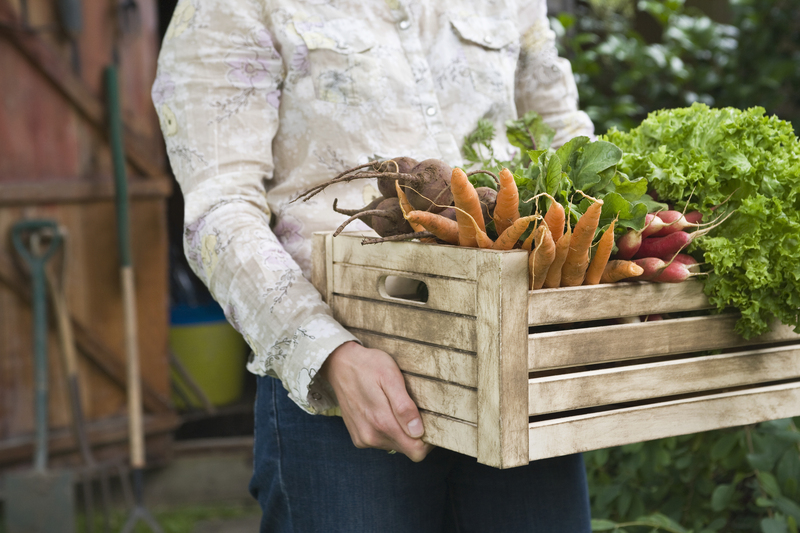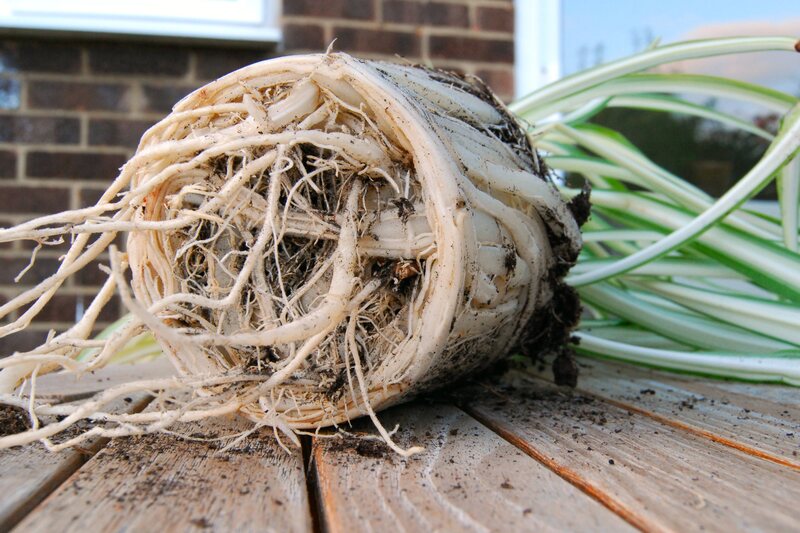Cultivate a Great Garden with These 9 Beginner Tips
Posted on 26/08/2025
Cultivate a Great Garden with These 9 Beginner Tips
Are you eager to cultivate a flourishing, beautiful garden, but not sure where to begin? Whether you dream of vibrant flowerbeds, a bounty of vegetables, or a serene green escape, getting started can feel overwhelming. Don't worry! With a few beginner gardening tips, you can transform any outdoor (or even indoor) space into a thriving oasis.
In this comprehensive guide, we'll share 9 essential tips that will help you nurture your green thumb and enjoy the rewards of a great garden, even if you've never planted a seed before. From choosing the right plants to understanding soil health and mastering the art of watering, these practical steps will set you on the path to gardening success. Ready to dig in?
Why Start Gardening?
Gardening isn't just about growing plants--it's also an amazing way to improve mental well-being, contribute to environmental health, and even save money on groceries if you grow your own vegetables and herbs. For beginners, the journey from seed to sprout to bloom is incredibly rewarding and educational.
- Stress Relief: Studies show that spending time in the garden reduces anxiety and boosts mood.
- Physical Activity: Gardening is a wonderful way to stay physically active and improve flexibility and strength.
- Eco-friendly: Cultivate a sustainable garden that attracts pollinators, improves air quality, and replenishes the soil.

Your Step-by-Step Guide: 9 Beginner Gardening Tips
Ready to start growing? Here are the nine essential guidelines every beginner gardener should know to ensure a thriving, lush garden.
1. Choose the Right Location
A golden rule to cultivate a great garden is to pick the proper spot. Observe your outdoor (or indoor) spaces throughout the day. Most popular plants, including vegetables and many flowers, require at least six hours of direct sunlight.
- Sunlight: Notice which areas get full, partial, or little sunlight.
- Accessibility: Select a spot you can easily reach for daily care and harvesting.
- Protection: Avoid locations prone to strong winds or heavy foot traffic.
*Tip: If you're short on space, container gardening or vertical gardens can make the most of patios and balconies.*
2. Start with Good Soil
Your garden's foundation is its soil. Healthy, nutrient-rich soil is essential for plant growth. Don't skip this step--invest time in understanding and improving your earth.
- Test your soil's texture and pH--simple kits are available online or at garden centers.
- Add organic compost or well-rotted manure to boost fertility.
- Remove debris, rocks, and weeds before planting.
*Pro Tip: Consider raised beds for better drainage and control over your soil composition.*
3. Pick Easy-to-Grow Plants
If you're new to gardening, begin with hardy, low-maintenance plants that tolerate minor mistakes. These resilient varieties will help you build confidence as you learn.
- For vegetables: Radishes, lettuce, beans, and cherry tomatoes are simple starters.
- For flowers: Try marigolds, sunflowers, zinnias, and petunias.
- Herbs: Basil, mint, chives, and parsley thrive in pots or garden beds.
4. Know When (and How) to Plant
Every plant has its own preferred planting season and method. Read seed packets or plant labels carefully--they're full of valuable information.
- Timing: Plant after the last frost for most annuals. Perennials and some bulbs may benefit from early spring or autumn planting.
- Spacing: Give each plant room to grow--overcrowding leads to disease and competition for resources.
- Depth: Plant seeds at the recommended depth for best results.
*Remember: Many local extension offices offer free calendars and charts tailored to your region's climate!*
5. Master the Art of Watering
Knowing how much and how often to water is crucial to grow a beautiful garden. Overwatering can drown your plants, while underwatering can leave them wilted and at risk.
- Water early in the morning or at dusk to minimize evaporation.
- Check the soil moisture with your finger--only water when the top inch is dry.
- Use a gentle spray to avoid damaging seedlings or delicate flowers.
- Mulch helps retain moisture and reduces the need for frequent watering.
*Tip: Drip irrigation systems are an efficient way to water directly at the roots!*
6. Fertilize Wisely
Even the best soil needs replenishing from time to time. Different plants require different nutrients--learn your plants' needs and choose natural fertilizers whenever possible.
- Compost: Homemade compost is environmentally friendly and rich in nutrients.
- Slow-release fertilizers: These offer steady nourishment for months.
- Avoid over-fertilizing: Too much can burn roots or harm beneficial soil microbes.
*Organic gardeners rely on kitchen scraps, coffee grounds, or grass clippings to boost soil health.*
7. Mulch for Success
Applying mulch around your plants offers numerous benefits. It retains soil moisture, keeps weeds at bay, and helps regulate soil temperature.
Good mulch materials include:
- Shredded bark or wood chips
- Grass clippings (dried)
- Straw or leaves
A 2-3 inch layer is sufficient. Keep mulch a few inches from plant stems to avoid rot.
8. Keep Weeds Under Control
Weeds compete with your plants for water and nutrients. Regular weeding is essential to maintain a vibrant and productive garden.
- Weed by hand, especially when the soil is moist--it's easier to pull roots intact.
- Use a small hoe or weeding tool for larger areas.
- Mulch acts as a natural barrier against weed seeds.
*Stay on top of weeds, especially in spring and after heavy rains.*
9. Embrace Patience and Observation
Gardening is as much about patience as technique. Monitor your garden daily--look for signs of pests, disease, or nutrient problems.
- Keep a garden journal for notes and sketches.
- Record what works and what doesn't each season.
- Don't get discouraged! Every gardener faces setbacks. Learn, adapt, and enjoy the process.
*Remember: Cultivating a fantastic garden takes time, so celebrate every small success!*
Bonus Gardening Ideas for Beginners
Once you get the basics down, experiment with these beginner-friendly gardening projects:
- Container gardens: Grow vegetables, herbs, and flowers in pots on patios or balconies.
- Pollinator gardens: Attract bees, butterflies, and birds with native blooming plants.
- Herb spiral beds: Create a beautiful, space-saving spiral garden for kitchen herbs.
- Cut-flower gardens: Plant sunflowers, zinnias, and cosmos for beautiful indoor arrangements.
Essential Tools for Every Beginner Gardener
- Hand trowel: Perfect for digging, planting, and weeding small areas.
- Gardening gloves: Protects hands from thorns, soil, and chemicals.
- Pruning shears: Keeps plants tidy and encourages healthy growth.
- Watering can or hose: Must-have for regular, consistent watering.
- Rake and hoe: Helpful for preparing soil and managing weeds.
Common Gardening Mistakes and How to Avoid Them
Even beginner gardeners make mistakes--what's important is learning from them. Here are some common pitfalls and how to sidestep them:
- Planting too early: Wait until the threat of frost is gone.
- Overwatering: Too much water can be just as harmful as too little.
- Ignoring plant labels: Read them carefully for spacing and care instructions.
- Poor soil preparation: Healthy soil is crucial--never skip this step!

Frequently Asked Questions About Starting a Garden
- How do I start gardening if I have very little space?
Container gardening, vertical gardens, and hanging baskets are great solutions for small spaces! - Can I garden year-round?
With the right plant choices and protection (like greenhouses or cold frames), gardening can be year-round in many climates. - How do I deal with pests naturally?
Encourage beneficial insects, use companion planting, and consider organic remedies like neem oil or insecticidal soap. - Do I need expensive tools or materials?
Start with the basics! Many resources can be upcycled--use egg cartons for seed starting or kitchen scraps for composting.
Conclusion: Grow a Great Garden with Confidence
Whether you have sprawling land or a sunny windowsill, anyone can learn to cultivate an amazing garden with the right approach. Start small, apply these nine beginner gardening tips, and enjoy the journey. Each step brings you closer to a lush and beautiful green space that will reward you for years to come.
Ready to start your planting adventure? Roll up your sleeves and watch your garden--and your skills--grow!
For more gardening tips, plant recommendations, and seasonal advice, subscribe to our gardening newsletter and keep nurturing your passion. Happy gardening!
Latest Posts
The Ultimate Guide to Refreshing a Neglected Garden
Relax and Unwind: Zen Gardens for Calm Outdoor Spaces
Creative Solutions to Eradicate Weed Issues

